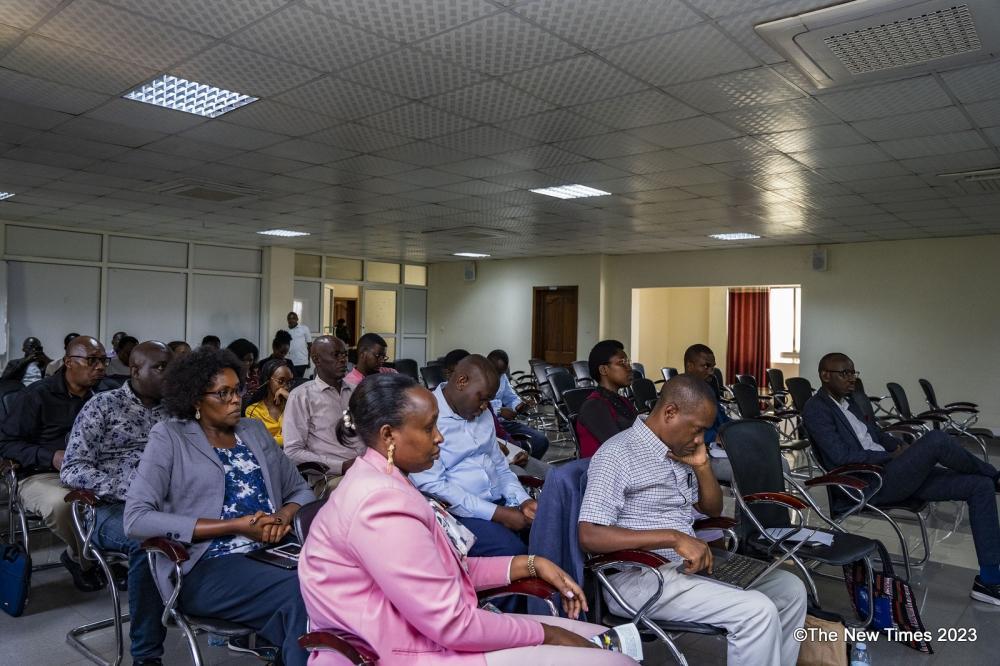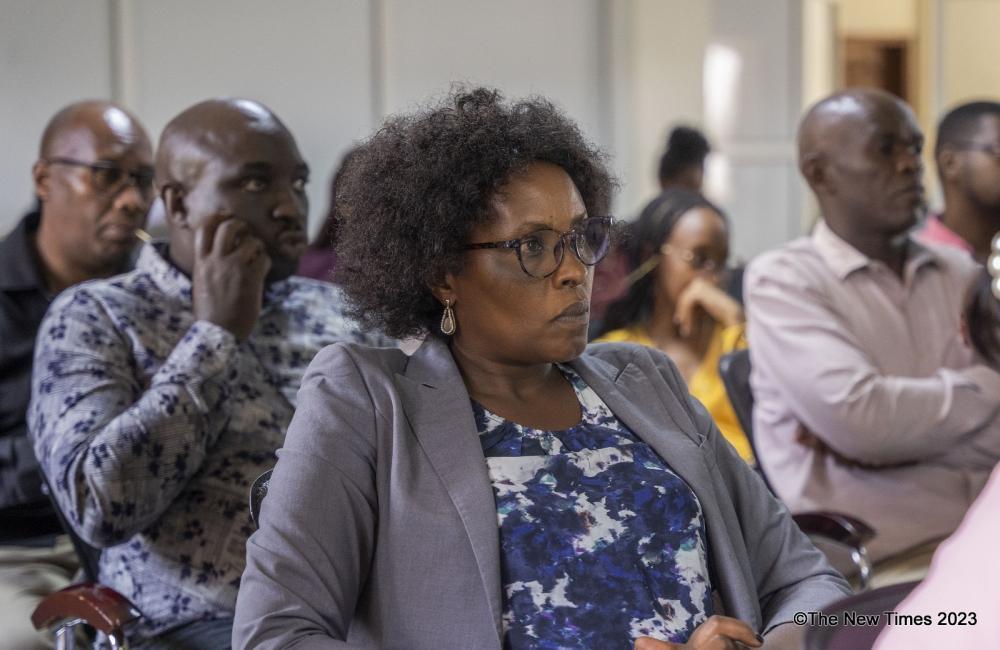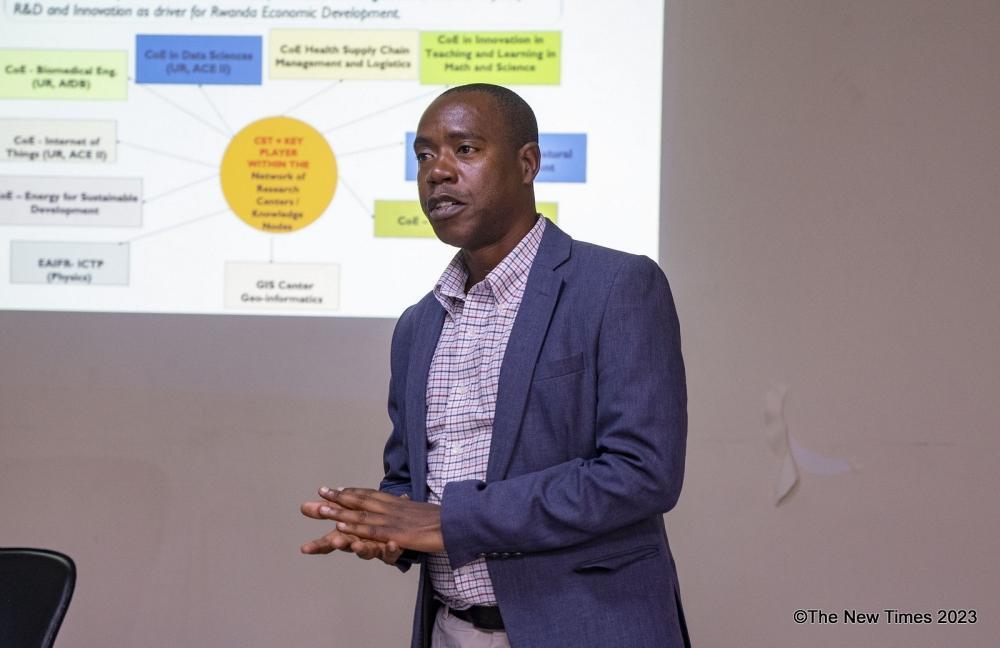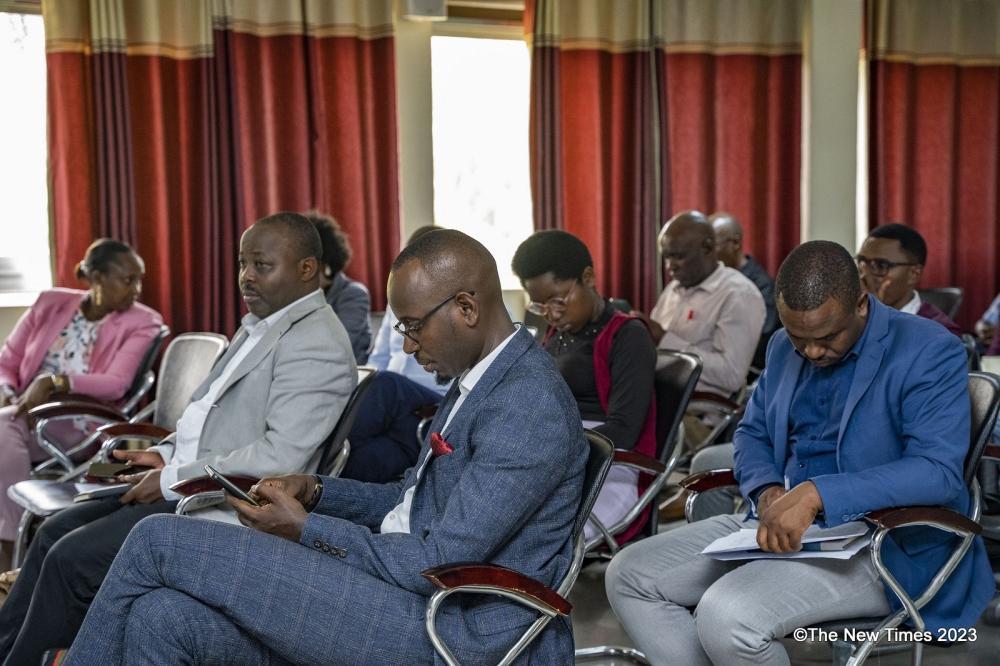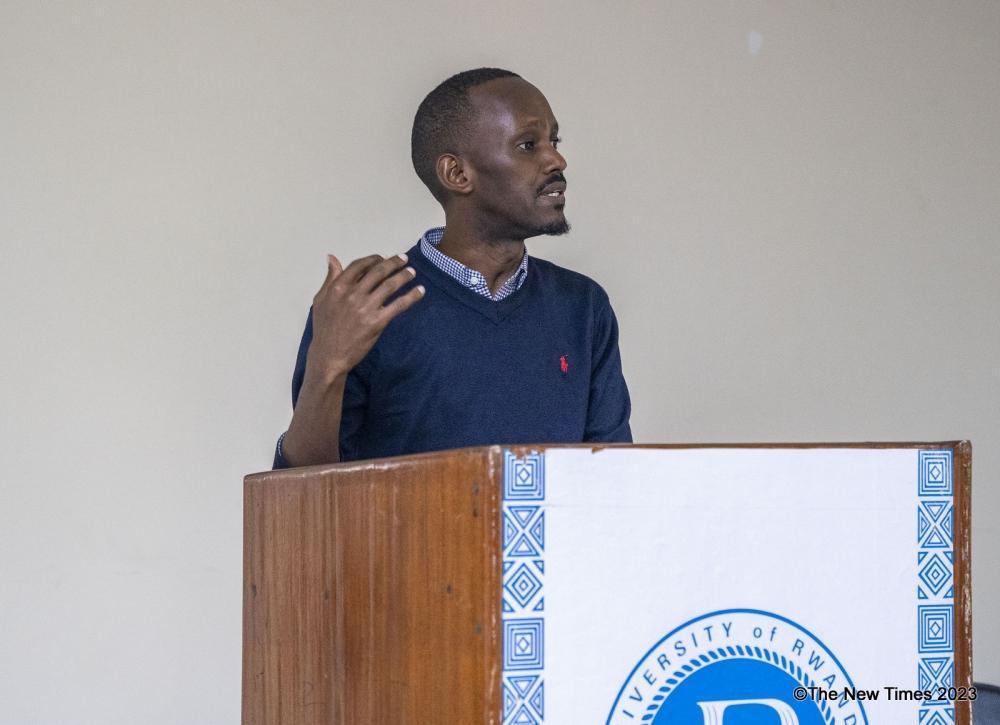Hudson Kuteesa
Africa-Press – Rwanda. The rapid change in digital technologies around the world often makes it hard for academic institution curriculums to keep up with the pace.
In order to address such gaps, Mastercard Foundation through Carnegie Mellon University-Africa supported six universities in Africa to establish the African Engineering and Technology Network (Afretec), a pan-African collaboration of universities aimed at building capacity, advancing digital transformation, and providing courses that students and other graduates may not have acquired while at school.
The Afretec programme at the University of Rwanda benefits students, staff in the public and private sectors, and the general public
The six universities include the University of Rwanda (UR), the American University of Cairo, Wits University from South Africa, Carnegie Mellon Africa, the University of Lagos, and the University of Nairobi.
The network focuses on producing locally and globally competitive tech talent; multi-institution collaborations for knowledge creation; relevant innovations; and fostering a tech startup culture and ecosystem across Africa.
At UR, the contact person and primary investigator of the Afretec project is Dr Raymond Ndikumana, the Deputy Vice-Chancellor of strategic Planning and Administration. He is supported by an Implementation team led by Dr Pierre Bakunzibake at the College of Science and Technology.
The Afretec programme at the University of Rwanda benefits students, staff in the public and private sectors, and the general public by offering short courses in fields like artificial intelligence, machine learning, robotics, cybersecurity, embedded systems, and a number of bridge courses in different subjects. The same programme also provides training for upskilling academic staff at the University.
“Due to lack of enough time, there are some things that students don’t get to learn in the ordinary curriculum at school, yet they are important on the market. Since it takes some time to change the curriculum and students may not be at the same level, we provide additional training and bridge courses under the Afretec project,” Pierre Bakunzibake, the Project Implementation Lead and Head of the Electrical and Electronics Engineering Department at the University, told the media.
One of trainers during his presentation
The Afretec network also aims at building a strong knowledge creation and educational infrastructure on the continent, in addition to providing a platform for its members to engage in deep collaboration that drives inclusive digital growth in Africa.
At UR, the programme aims to reach out not only to undergraduate students but also to their postgraduate and PhD counterparts, as well as lecturers, and stakeholders including industry players and public sector servants.
“We focus on short courses and knowledge creation. We also organise workshops which can bring together people from academia and industrial stakeholders to work together,” Bakunzibake said.
Marie Jose Mukamana, a teacher of computer science in Nyagatare District, one of the beneficiaries of the Afretec courses, said she learnt a couple of things she had not learnt at university.
“Through Afretec, I was given training in two courses – networking and cybersecurity. At university, we had only studied networking, not cybersecurity. It was the first time I studied cybersecurity,” she said.
For Habib Ndayishimiye, a second-year computer science student at UR, Afretec provided an opportunity to learn about the applicability of what he studied theoretically.
Through the programme, he has studied more about the practicability of C++, a cross-platform language that can be used to create high-performance applications.
“Though we already had a C++ teacher, it was great to have more lectures about it. The (Afretec) teacher gave us more knowledge regarding how C++ can be used and what we can do with it,” he noted.
Bakunzibake called upon the tech industry to support the programme by providing their expertise in training, as well as recognising the certificates that professionals get through Afretec.
“We also hope to sign some MoUs at university levels. When we do workshops, we can get the opportunity to engage with officials from different universities. With that, we can sign MoUs in other fields outside of the Afretec programme,” he noted.
So far, according to Bakunzibake, Afretec’s bridge programme which focuses on first-year students has trained 484 people, while the certification programme which focuses on industry players, final-year students, postgraduates and PhDs has trained 180 people.
For More News And Analysis About Rwanda Follow Africa-Press

